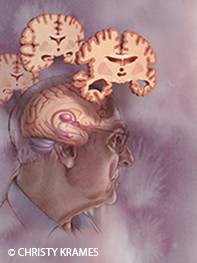Peer Reviewed
Feature Article Psychiatry and psychology
Dementia: 14 essentials of assessment and care planning
Abstract
Many GPs report a lack of time and confidence in diagnosing dementia. Fourteen practical points are described to guide the assessment and care of patients with cognitive decline.
Key Points
- Signs of possible dementia should be taken seriously; timely diagnosis is important to allow patients to be treated and patients and families to prepare for the future.
- Take a detailed history and perform a standardised test of cognition and a mental and physical examination.
- Diagnose the dementia cause; investigate for reversible causes and rule out other diagnoses, such as delirium, depression and drug adverse effects.
- For patients with dementia, discuss key issues including daily living, legal and financial affairs, the transition from work and driving, and the stress on supporting carers and family.
- Assessment should culminate in a care plan, with strategies to manage specific symptoms, support for the patient and family, regular monitoring and referrals to support groups and organisations.
- As symptoms and challenges change over the course of dementia, the care plan needs regular review.
Purchase the PDF version of this article
Already a subscriber? Login here.

